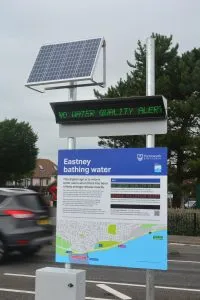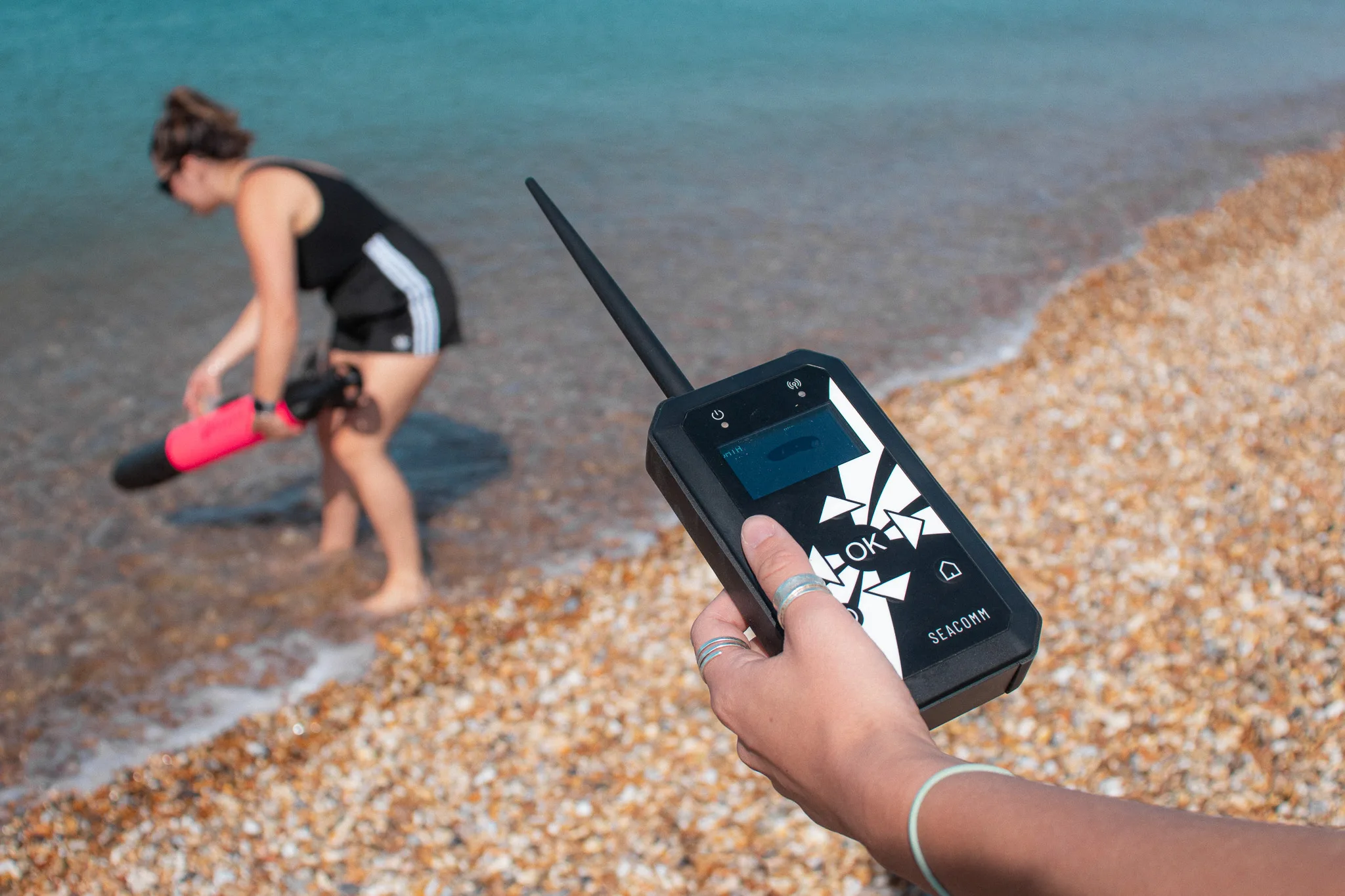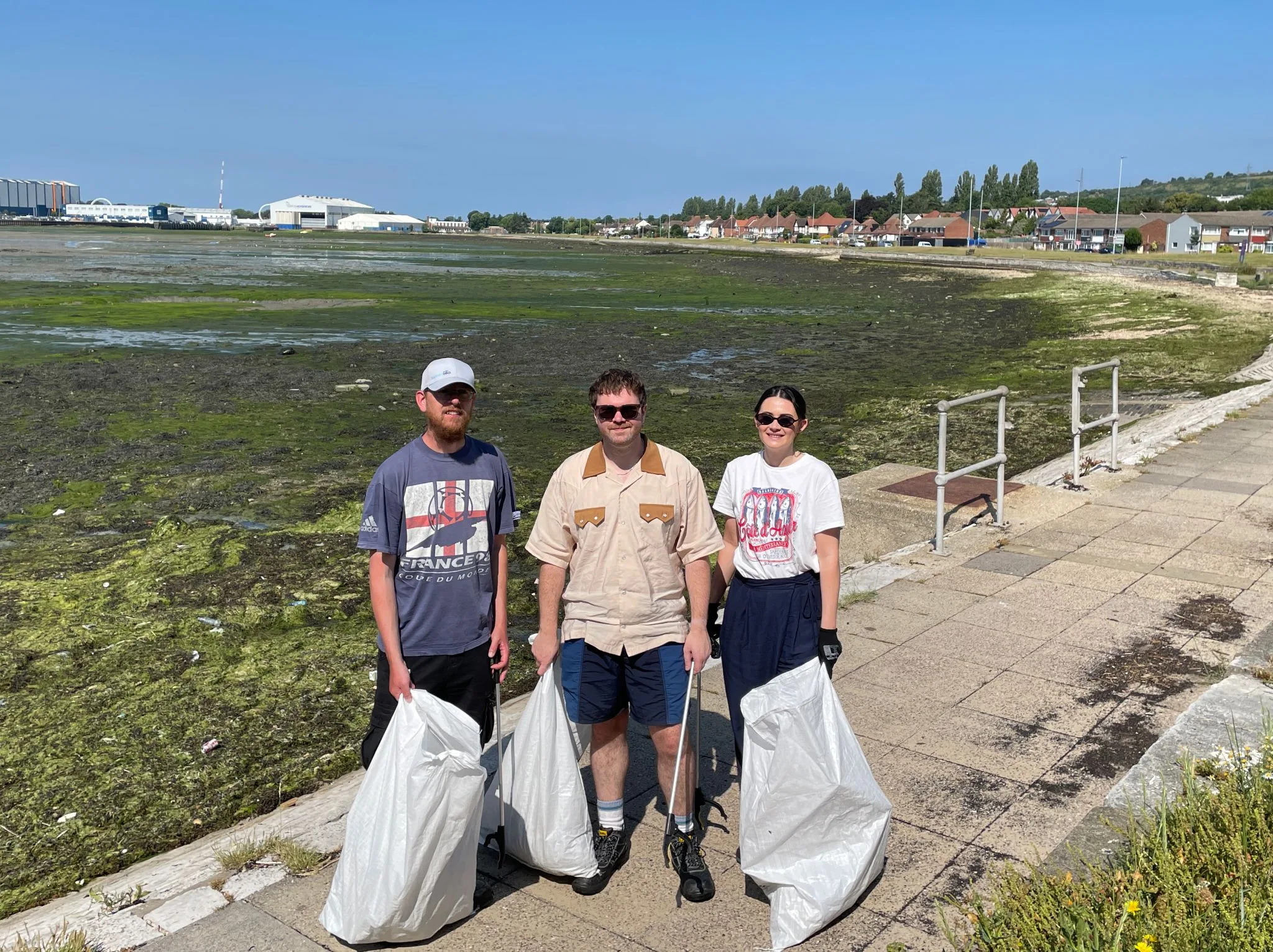We’ve all heard about the water quality problems in the UK. From seaside towns to rivers in areas rich with agriculture, UK residents are facing trouble in the water due to sewage pollution.
In this article, we explore the latest sewage pollution statistics, the recent government pledge and how ocean technology can help combat the growing problem.
Water pollution in the UK
The UK’s current infrastructure has become outdated and it’s unable to keep up with an increased population, climate change and urbanisation. The result? Our current waste management systems cannot handle the amount of waste that comes through, which leads water companies to discharge raw sewage into our waters.
Clean water for leisure activities is diminishing and has been for the last 30+ years. Swimming in coastal waters now poses the same health risks as it did back in 1990s. Illnesses such as gastroenteritis, hepatitis and Escherichia coli (E. coli) can be contracted in UK oceans. 1
“Water pollution: facts & figures,” Surfers Against Sewage, accessed August 27, 2025, https://www.sas.org.uk/water-quality/water-quality-facts-and-figures/.
With the advancement of water quality monitoring technology in the last 30+ years, the capabilities we have now in comparison to what we had then has significantly improved. If only we could say the same about our crumbling water management infrastructure. If the technology had developed at the same rate, would we be facing the issues we have now?
How does the water become polluted?
In the UK, water companies are legally permitted to release, or “spill,” sewage into rivers, lakes, and coastal waters under certain conditions, such as during periods of heavy rainfall when the sewer system risks being overwhelmed.
These controlled discharges are intended to prevent sewage backing up into homes and streets. However, since records began, thousands of such spills have been officially recorded across the country’s waterways even when the system isn’t being compromised by intense rainfall.
According to the charity, Surfers Against Sewage, there was a whopping 994,499 sewage discharges in the UK in 2024, and this figure is likely an underestimation.
UK Government to cut sewage pollution in half by 2030
In July 2025, UK Environment Secretary Steve Reed pledged to half sewage pollution by 2030. The pledge sets out new rules that polluting water companies must comply with.
Pledge Highlights
- £104 billion investment to replace crumbling pipes and build new sewage treatment works
- 50% reduction in storm overflows
- Funding for Environment Agency enforcement offers to crackdown on water companies failing to comply
- The introduction of the Waters Special Measures Act
Local councils’ duty of care
Adequate water quality testing is challenging for local councils as the responsibility is shared across several key organisations such as water management companies and the Environment Agency.
If local lakes, rivers and oceans are facing sewage pollution more frequently, there’s a higher risk to public health. Local councils are a key advisor for public health, adequate water quality monitoring tools are essential to ensure the council is notified in real time to protect locals from illnesses caused by pollution.
Last year Portsmouth County Council have introduced electronic signage at Eastney esplanade, so locals are aware of the quality of the water they are bathing in.
Using the real-time map developed by local campaign group Surfers Against Sewage, the signage reads green for ‘no water quality alert’ or red for ‘sewage pollution alert’.

Now more than ever, from government to local councils, ocean technology must play a vital role in improving the quality of our waters. Protecting the wellbeing of people, marine life, and fragile ecosystems is not only urgent but essential if we are to meet the ambitious goals set for 2030.
How ocean technology can support cleaner waters
For RS Aqua, water quality is imperative to what we do. Our oceans need to thrive for the wellbeing of marine life and marine ecosystems.
Water quality monitoring will continue to be a key focus for the UK government. Turning around decades of pollution won’t be easy and with the current goals set out in the pledge, most of us will be wondering, will we ever get to a place where waters are ecologically sound?
Developed by our partners SEABER and distributed to the UK and Ireland through RS Aqua, the YUCO, an autonomous underwater vehicle (AUV) has the capability to test for tryptophan which can be used to detect sewage pollution.
What is the Yuco?

The YUCO at Stokes Bay Beach, Gosport
The YUCO micro-AUV is a uniquely reliable tool combining exceptional performances and low maintenance, operable in different types of coastal waters.
This “off-the-shelf” micro-AUV is swiftly deployed, and its easy-to-use interface provides accessibility to its users.
When considering a micro-AUV like the YUCO for water quality monitoring, its VigiDNA filtration kit feature enables the users to extract DNA from marine and freshwater environments, without disturbing any species.
Key features of the YUCO
- Multiple payloads
- Advanced mission planning with the SeaPlan software
- Easily deployed
What is the Blue Economy?
According to the World Bank, the Blue Economy is the sustainable use of ocean resources for economic growth, improved livelihood and jobs and ecosystem health. It is no different from any other economy, yet there are a few distinctions, such as a commitment to sustainable growth and wider social benefits.
Clean waters don’t just sustain marine life – they keep local businesses afloat. But as water quality declines, the blue economy faces serious risks.
We delve more into the Blue Economy in a video we produced last year, watch the video here.
How we support our local waters
At RS Aqua, we support our local community and the environment by doing regular beach cleans. Being based in Portsmouth means we have access to various beaches, and over the years we’ve done our best to make it a regular occurrence, an RS Aqua tradition.

How you can take action
There a plenty of charities that are campaigning for change. Here’s how you can support the movement.
Surfers Against Sewage
Final Straw Foundation
Talk to one of our advisers
Get in touch with us for further information or for a conversation about any of our innovative and reliable ocean technology systems, sensors or services.